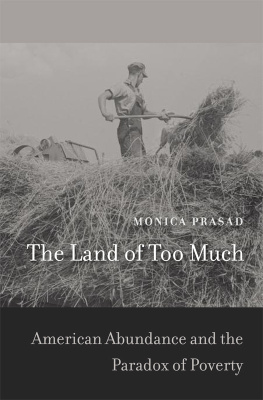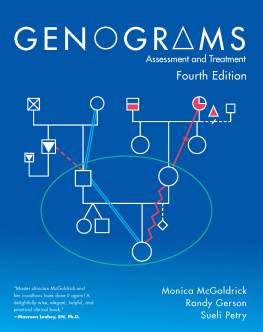The Gendered Economy
Series Editors: Sara Cantillon and Diane Elson
This path-breaking new series critically examines the economy and the theory and methodology of economics through the lens of gender. It will publish original and incisive research that explores the role of gender in the contemporary global economy. The series showcases how economic relationships, actions and institutions are directly affected by gender norms, how a gendered perspective illuminates aspects of the economy that would otherwise be ignored, and challenges many of the tenets that underpin both the mainstream and heterodox interpretation of how economies function.
Published
Collective Bargaining and Gender Equality
Jane Pillinger and Nora Wintour
The Economys Other Half
James Heintz
The Sex Economy
Monica OConnor

Monica OConnor 2019
This book is copyright under the Berne Convention.
No reproduction without permission.
All rights reserved.
First published in 2019 by Agenda Publishing
Agenda Publishing Limited
The Core
Bath Lane
Newcastle Helix
Newcastle upon Tyne
NE4 5TF
www.agendapub.com
ISBN 978-1-78821-012-6
British Library Cataloguing-in-Publication Data
A catalogue record for this book is available from the British Library
Typeset by JS Typesetting Ltd, Porthcawl, Mid Glamorgan
Printed and bound in the UK by 4edge Ltd, Essex
Contents
by Series Editors
Sara Cantillon and Diane Elson
The Gendered Economy is a new path-breaking series of short books which critically examine our understanding of the economy through the lens of gender and expose the androcentric biases within mainstream and heterodox economic analysis.
This book contributes to the series by providing a trenchant critique of the framing of prostitution as a form of labour, similar to other forms of service/care work, which can or should be regulated within a labour rights framework. It adds to the contributions feminist economists have made to critiquing the market economy and the commodification of more and more aspects of life. This book is timely given international policy developments around legalizing and regulating sex work. It is also timely given that the intersection of globalization, poverty and migration has resulted in an exponential rise in the number of migrant women within low status gendered occupations in post-industrial economies where the possibilities for choice and agency are highly constrained.
The Sex Economy shows not only how economic relationships, actions and institutions are directly affected by gender norms but also challenges many of the tenets that underpin the interpretation of how economies function. The commercial sex trade is highly gendered: demand is almost exclusively male, and supply is made up predominantly of women plus a small minority of young men and Trans people. The discourse surrounding prostitution has increasingly become one of market transactions, which are discussed both as a legitimate economic business and as employment comparable to other forms of low-paid work. So much so, that in some countries, such as Germany and the Netherlands, it has been regulated within a labour-rights framework. Presenting primary data, extensive comparative reviews of policy approaches and the evidence emerging from countries where the state has sought to legalize and regulate sex work like any other sector of the economy, this book argues that there is an urgent need to interrogate the implications of this approach.
More fundamentally, this book grapples with questions asked by both economists and philosophers regarding the limits of markets. Are there moral limits to markets or are there some aspects of human life that either cannot, or should not be, commodified? Drawing on extensive and detailed research, including her own field work, Monica OConnor challenges the suggestion that the sale of womens bodies as commodities can ever be acceptable, and that the male consumer has an acceptable right to buy women for sexual gratification. She challenges the claim that sex work is a relatively lucrative occupation for impoverished women and girls that can be considered for regulation as part of the mainstream market economy. She depicts the harm that normalizing the sex trade does to womens lives, gender equality and society as a whole, and exposes the realities that constrain and control women locked in prostitution. In so doing, the book poses the question of what should be considered a legitimate part of the economy and interrogates concepts fundamental to political economy such as power, exploitation and opportunities.
This book challenges the framing of prostitution as sex work, which asserts that it is a legitimate and acceptable form of work which can and should be regulated as a normal part of the market economy. Terms such as sexual commerce, sexual transactions, sexual exchange and consumer demand reflect the current trend towards situating prostitution as a legitimate business by those promoting the commercial sex trade. Sex work academics and advocates argue that the selling of sexual services is comparable to other forms of services, including domestic labour and care work and therefore sex work can and should be governed within a legal labour rights framework (Agustin 2007; Chapkis 2009; Sanders et al. 2009). It is asserted that the majority of women exercise individual choice and agency in entering and remaining in the commercial sex trade, choosing it as a better economic option than other forms of low status occupations (Bettio et al. 2017; Ditmore 2005; Doezema 2010). Given the right working conditions, it is claimed, the prostitution contract can be an equal, respectful, commercial sexual exchange where any harmful or negative consequences are minimized and through which the rights of both the worker and the consumer are protected. In recent discourse, there is also an emerging emphasis on the sex buyers demand for intimacy within the indoor setting and that the present-day consumer has a legitimate expectation of intimacy, emotional relationship, a girlfriend experience to be part of the financial transaction (Bernstein 2010; Brents et al. 2010; Milrod & Monto 2012; Sanders 2008; Weitzer 2010). It is argued that the emotional labour (Russell Hochschild 1983) this demands is also required in other areas of the gendered economy, including child care and elder care, and that the sex worker also develops strategies to manage the physical and the emotional needs of their clients (Oerton & Phoenix 2001; Sanders 2005).
The negative aspects of the sex trade including pimping, coercion, violence, child sexual exploitation and trafficking are recognized but, it is claimed, legalization will remove these undesirable elements and deliver a safe working environment where the norms of labour rights and laws can be implemented. In addition, the normalization and legal recognition of sex work is expected to deliver social benefits, enable better health care and safer commercial transactions for both consumers and workers. The logical extension of this approach is that legalization would deliver employment contracts in brothels with social security contributions and pension schemes, with some suggesting that the introduction of quality control labels into this sector of the market could potentially contribute towards controlling criminal activity and trafficking of human beings (Rijken & Van Krimpen 2008).












